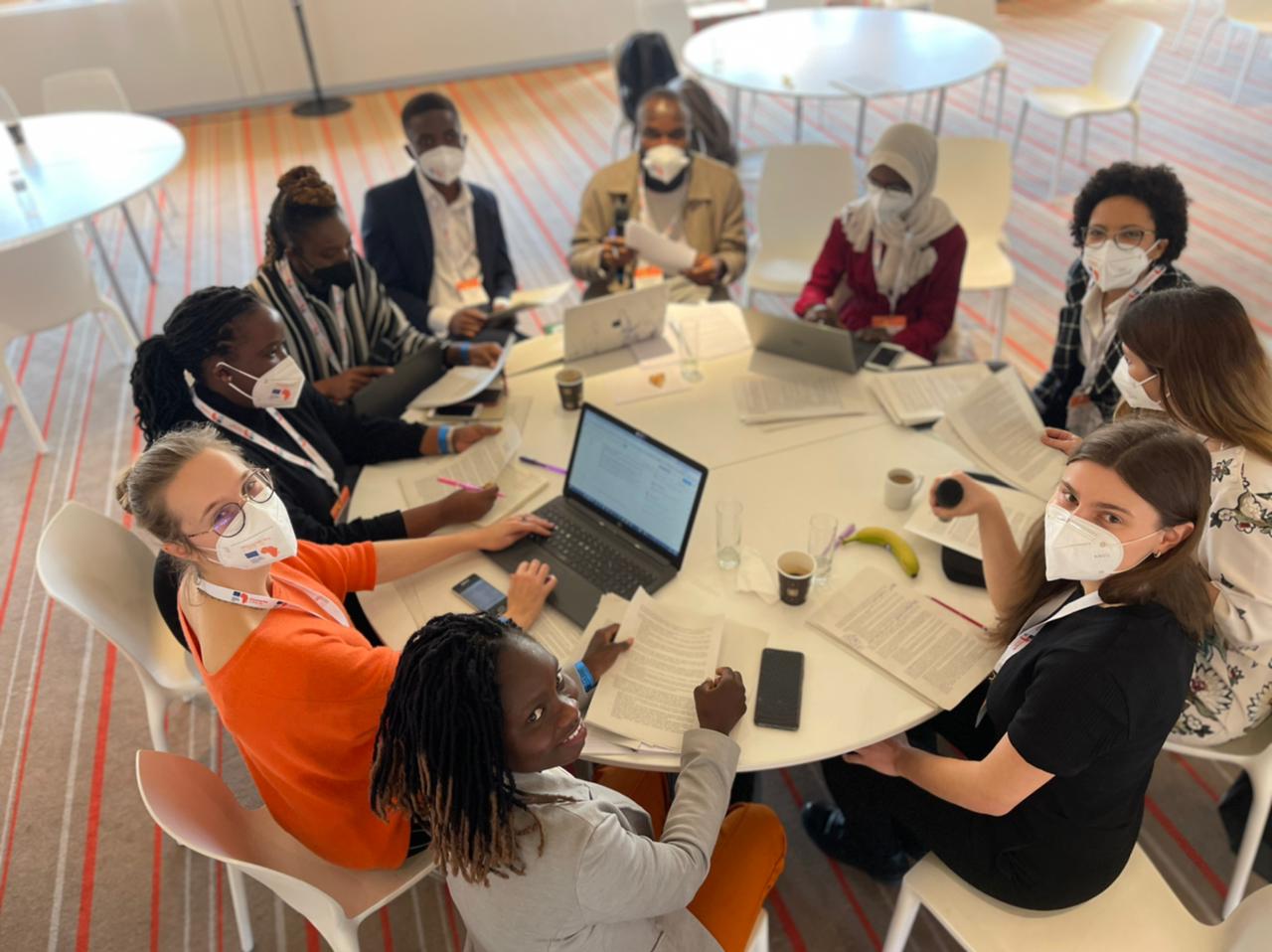A YOUNG FAIR TRADE ADVOCATE KEEPING TRACK OF YOUTH INVOLVEMENT AT AU-EU SUMMIT
14/02/2022-16/02/2022

The Heads of State and Government of the Member States of the African Union (AU) and the European Union (EU) met on 17–18 February 2022 to develop a renewed Partnership for solidarity, security, peace and sustainable and sustained economic development. For a more inclusive
and representative Partnership, AU and EU institutions need to meaningfully include young people. The Young Fair Trade Advocate, Eva Jonskin, made this point very clear during her participation to the Youth Track Task force invited at the European Parliament. She took part to different workshops and sessions, and the outcome documents were distributed to the Heads of States at the EU-AU Summit itself. The contributions of the Youth were indeed specifally mention under point 8 of the final declaration of the 6th European Union – African Union Summit.
KEY RECOMMENDATIONS AND MESSAGES:
- Youth Participation and the Africa-EU Partnership:
It is important to ensure y outh participation that goes beyond consultations and that processes are in place and concrete resources allocated to youth mainstreaming in the Africa-EU Partnership.
outh participation that goes beyond consultations and that processes are in place and concrete resources allocated to youth mainstreaming in the Africa-EU Partnership.
- Meaningful and inclusive participation of young farmers at decision-making on climate change interventions should also be promoted, including:
- Deliver the USD 100 billion climate finance promise made by the high-income countries in 2009, which needs to reach directly farmers and workers including young farmer, for them to strengthen their climate resilience interventions; Strengthen business regulations, to encourage investment in sustainable supply chains, payment of fair prices to farmers and taking ownership of environmental issues in their supply chains;
- Accelerating human development: Africa and Europe face the challenge to reimagine the education sector to be agile in responding to 21st century global demands. This includes expanding digital learning opportunities for every child, revising school curricula to improve education quality and relevance, investing in evidence‑based research and innovation.
- Accelerating the green and digital transition, and sustainable growth and decent jobs: On the green transition, the Global North needs to acknowledge its responsibility in the global processes of environmental degradations, and thus, its responsibility to addressing adequately its causes and consequences under a justice lens.
When asked about her experience, Eva told us that :
“Being at the European Parliament alongside other young people was a unique opportunity. I was delighted to be invited and see the “behind the scenes” of how important decisions affecting all of us are made. I’m an energy engineer, and I’d never gone to a meeting like this before, which made the whole experience exciting, though a little scary. I feel like I’ve been given the right skills to engage in advocacy activities as a Young Fair Trade Advocate, but being there made it more concrete and sometimes challenging. I had the opportunity to interact with several high-level politicians during my attendance at the event, including Jutta Urpilainen, European Commissioner for International Partnerships. These sessions I participated in included panel discussions and workshops which were informative, but my favorite part was meeting young people from other organizations. Given that we represented several CSOs, it was sometimes difficult to find common ground on which to deliver our proposals. This, however, was also a push since it demonstrated that young people are dedicated to their beliefs, and that they are prepared and eager to present concrete recommendations. On my part, I was thrilled that I was able to emphasize the need of ensuring fair trade through rules in conjunction with governments to secure food security and make farming more appealing to young people, a topic that I am passionate about. However, I am concerned that young people will continue to be sidelined. The high-level meetings were frequently rushed, and despite assurances that our views were taken into consideration during the discussions, we still miss being at the table with other policymakers. Also, instead of merely presenting my organization, I would have preferred to have more freedom in shaping our proposals, but time constraints made this impossible. Overall, I see this event as a starting point, but I want to emphasize the need of seriously considering these proposals and holding politicians accountable. Our Youthtrack outcomes document is more than just a file to be filed away; it’s a vital document to work on. This is only the start.”
The final version of the Joint Outcomes document summarizing the key messages from the Youth Track is online at this link. The document also features on the INTPA website together with the outcomes documents from CSOs, local authorities and private sector.
All the sessions of the Youth Track are available on Swapcard.